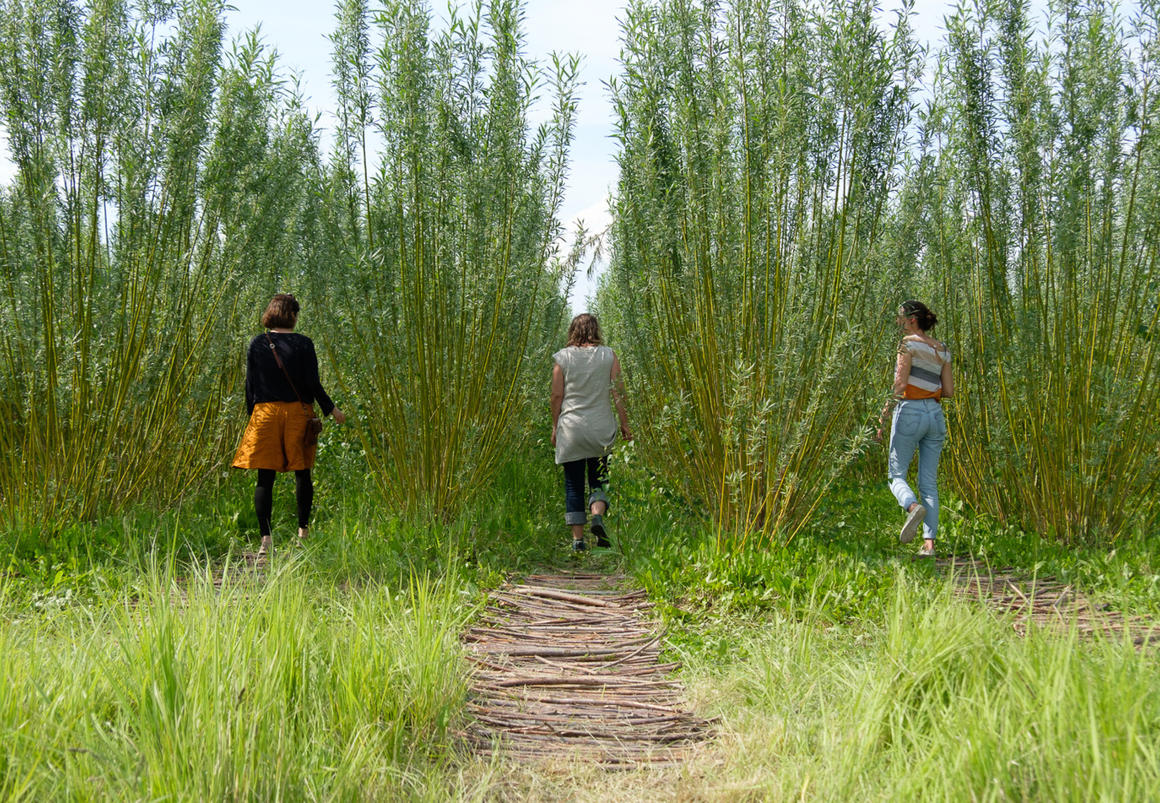
Guest curator: Chair in Landscape of the Faculty of Architecture, 'La Cambre Horta'.
The history of parks and gardens reflects our relationship with the living world, which is currently in crisis. From Brussels to Cologne via London, landscape experiments propose new ways of doing and being in a resolutely optimistic perspective. This symposium sheds light on new landscape projects where design and aesthetics, sheep and mindfulness, forest energy and the role of the landscape architect take centre stage. Think of it as an open invitation to share knowledge in order to ideate the landscapes of tomorrow.

Tickets (click here)
14 : 00 | Welcome
14 : 30 - 17 : 30 | Reports on pilot projects, presentations, and Q&A.
Pierre Meerts
The Jean Massart Garden, a botanical garden for urban resilience
Plant and ecosystem resources will certainly play an important role in the development of more resilient and liveable cities. As a university teaching site, the Jardin Massart works with university teams on the resilience of urban ecosystems. It is a meeting place for the student population, researchers, schools and the general public; as such, it can be seen as a tool for social cohesion and the reconnection of the people of Brussels with science. The Jean Massart Garden, on the outskirts of Brussels, comprises natural habitats of high conservation value, included in the Natura 2000 network. Its great botanical diversity supports an exceptional animal biodiversity. This part of the Garden delivers a message of hope: appropriate management, even in an urban context, can maintain significant biological diversity, which feeds the green and blue network of the Brussels-Capital Region.
Emilie Holemans, David D'Hondt, Suzanne Askenasi
The Vogelzang: landscape and wellbeing
A landscape architect, a shepherd, and a relaxation therapist offer us a conversation about an original landscape experience in Brussels. The Vogelzang park is simultaneously a landscape restoration project, a grazing area, and a meditative pathway. In this space of co-presence, relationships are gradually being built between patients of the Erasmus Hospital, a flock of sheep, and the local residents. This development was not anticipated or conceived as such, the approach is rather similar to that of an open project. With the Vogelzang, a new concept of a park oriented towards wellbeing is emerging in Brussels, and is now also being developed in Luxembourg.
Axel Timpe, Living Lab for future landscapes: Waldlabor Köln
Climate change and the transition to a post-fossil economy will deeply affect our landscapes, forests and urban greenspaces. For mitigating and adapting to the climate change and for using nature-based resources more efficiently we will need to transform the way we are designing, using and managing them. Since 2009, the Waldlabor Köln (Cologne Forest laboratory) is experimenting how this transformation could look like in urban areas. In this area the City of Cologne and the Institute of Landscape Architecture of RWTH Aachen University are testing the landscape impact of climate proof tree species, short rotation coppices as a carbon pump and new species combinations in planting woodland.
The intervention will present the setup of the laboratory, results from research on its perception and its use as a teaching resource for students.
Neil Davidson, Landscape Learn
As urban populations intensify, centralizing resource demand and dispersing resource production, access to nature is becoming increasingly fundamental to our mental and physical wellbeing. Re-emerging are concepts of re-wilding, land restoration, safeguarding urban habitats and habitat creation.
Landscape Learn uses the seasonality of nature to structure an alternative approach to adaptive, cross-disciplinary and immersive learning.
With Landscape Architecture positioned between the arts, humanities and sciences. We can champion design to delivery, cover scientific research and resource management and empower communities to become environmental provocateurs.
17:30-18:00 | Break
18:00-19:30 | Roundtable discussion
Address : Bruxelles Environnement, avenue du Port 86C, 1000 Bruxelles.
